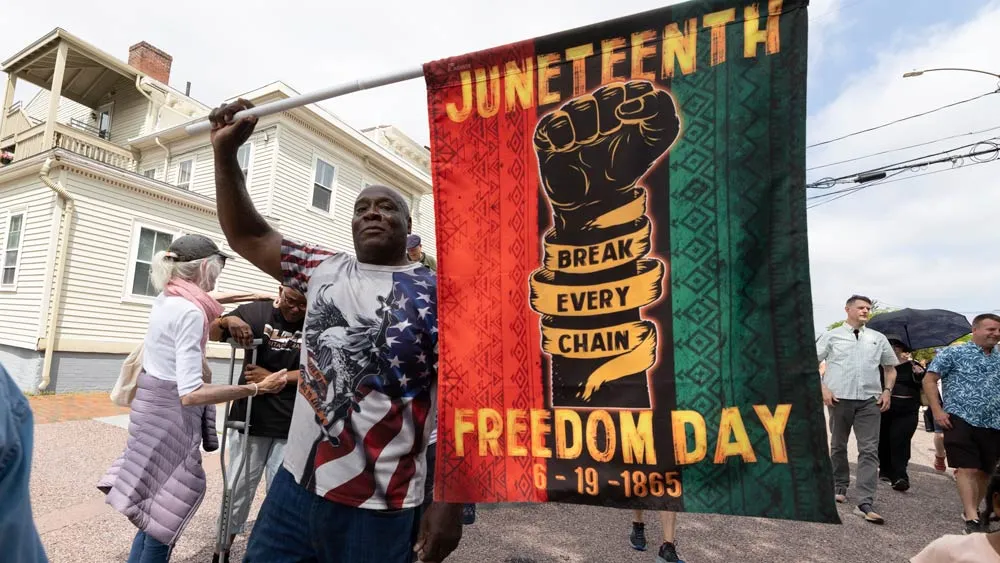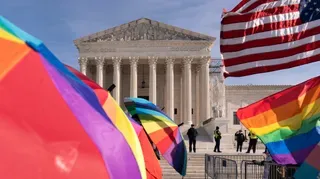May 30, 2008
Senate amendments bring $$ for LGBT programs, but not AIDS funding
Michael Wood READ TIME: 3 MIN.
The Massachusetts state Senate voted to add new dollars to LGBT-related programs across the board May 22 during deliberations on the fiscal year 2009 (FY09) budget. HIV/AIDS programs, however, did not fare as well; the Senate rejected an amendment to add $500,000 to the HIV/AIDS budget line.
The Senate approved budget amendments granting modest increases in state funding for LGBT youth programs, the LGBT Aging Project and for LGBT domestic violence programs. In the latter two areas the Senate matched the funding levels in the House's budget bill, making it all but certain that those increases ($20,000 in new funding for the Aging Project and $100,000 in new funding for domestic violence) will appear in the compromise version of the bill that winds up on Gov. Deval Patrick's desk. On youth programs, the Senate went further than the House, granting an additional $100,000 in funding above the increase passed by the House for LGBT youth programs in the Department of Public Health (DPH). That increase would bring total funding for LGBT youth programs in DPH and the Department of Education (DOE) up to $850,000.
Matt McTighe, political director for MassEquality, credited the work of Sens. Dianne Wilkerson (D-Boston) and Ed Augustus (D-Worcester), who sponsored the amendments pushing for LGBT funding increases, for the gains in the Senate budget. Augustus sponsored the domestic violence amendment, while Wilkerson sponsored the amendments for youth programs, the Aging Project, and HIV/AIDS programs. McTighe said Wilkerson in particular played a key role in winning the funding increases.
"At the end of the day she really pushed hard for these things, and she delivered it," said McTighe.
Lisa Perry-Wood, executive director of the Massachusetts Commission on GLBT Youth, praised Wilkerson for her success at increasing the youth budget beyond the amount allocated by the House. She said the lobbying efforts by Wilkerson and the members of the commission were bolstered by informal data from the 2007 Youth Risk Behavior Survey (YRBS), which for several years has provided data about the health and safety risk factors facing gay, lesbian and bisexual students in public schools in Massachusetts. The 2007 YRBS has not yet been released, but Perry-Wood said the Department of Education provided the commission with preliminary data showing that since 2005 there has been an increase for LGB youth in suicide attempts, risk of suicide, and being threatened with a weapon at school.
"These are issues Sen. Wilkerson felt very strongly about and I'm sure spoke to her colleagues about, and I'm sure that makes a difference," said Perry-Wood.
Wilkerson did not return calls to comment for this story.
Perry-Wood said the advocacy of MassEquality and the Massachusetts Gay and Lesbian Political Caucus were also vital to the success in winning the budget increases.
"We wouldn't have had Dianne Wilkerson at the table if it hadn't been for MassEquality and the Caucus, so that was critical too," said Perry-Wood.
Wilkerson's amendment to add $500,000 to the HIV/AIDS budget failed to win passage in the Senate. During the House debate advocates successfully lobbied for an increase of that magnitude in the House budget bill. McTighe said when the House and Senate meet in a conference committee in the coming weeks to hash out a compromise bill allies on Beacon Hill will be pushing to ensure that the $500,000 increase appears in the final bill. He said they will also work to make sure that the Senate's larger allocation for LGBT youth funding carries the day in the compromise budget.
Michael Wood is a contributor and Editorial Assistant for EDGE Publications.







